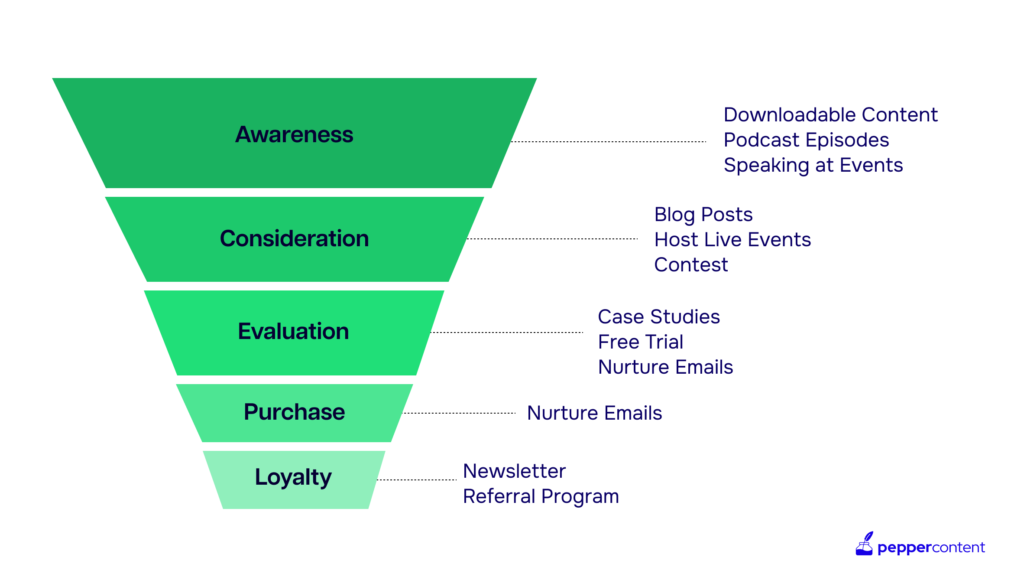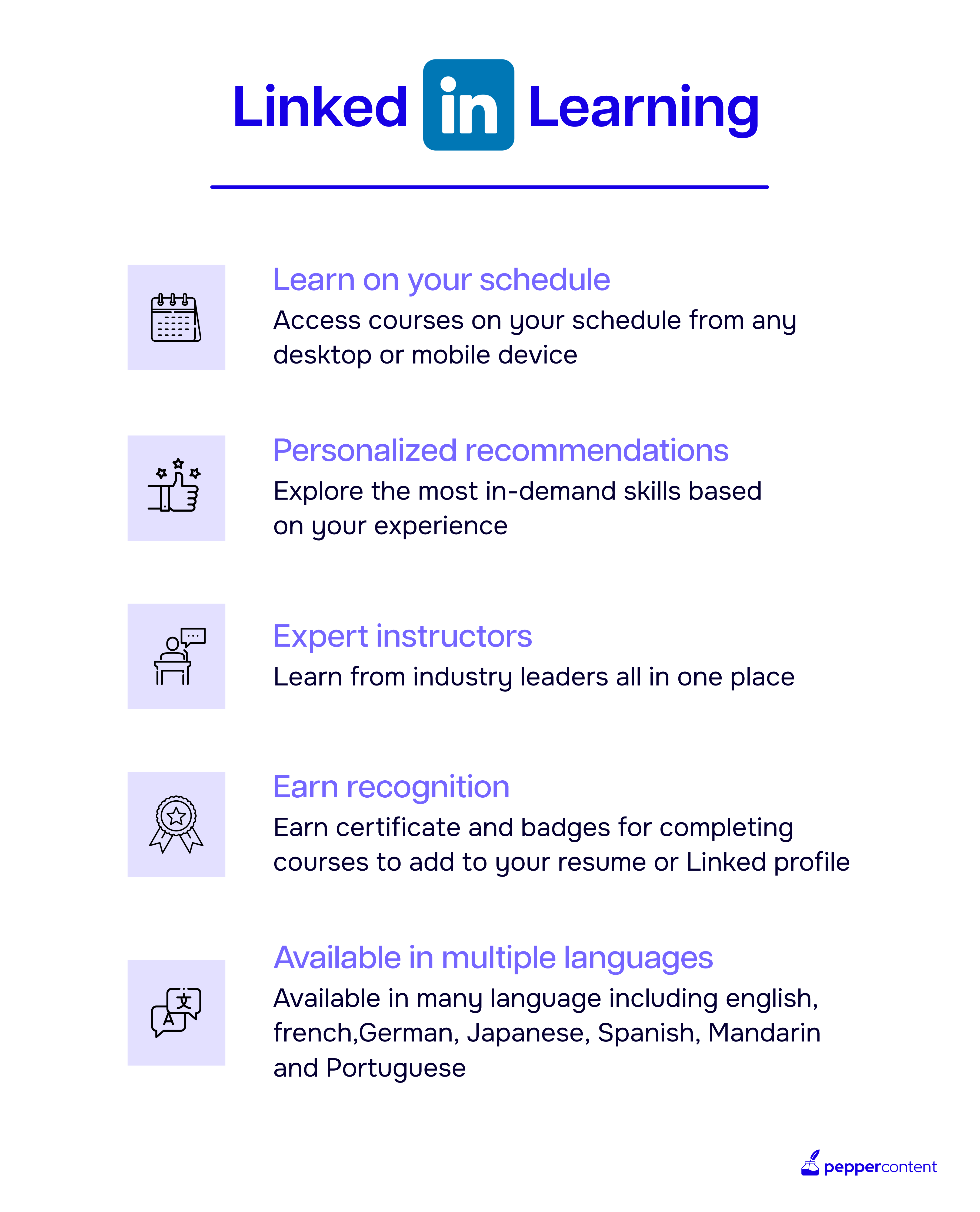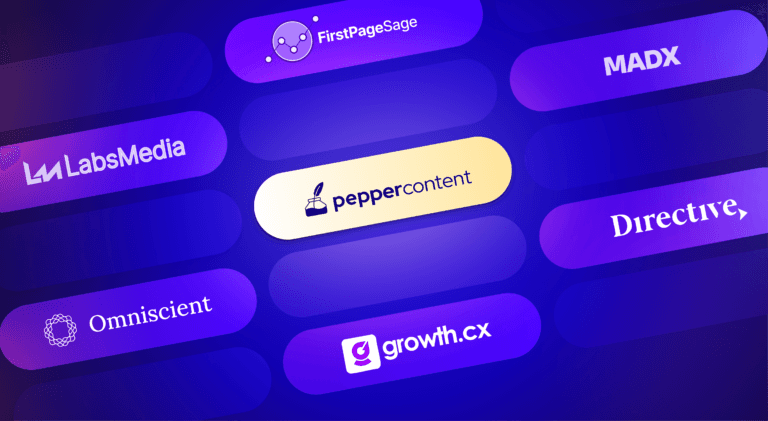Mastering Content Marketing for EdTech Companies

As a content marketer in the EdTech industry, you have the power to shape the future of education through your digital strategies. With the rapid advancements in technology and the increasing demand for online learning, the role of content marketing has become more critical than ever.
By understanding the importance of a well-defined EdTech content marketing strategy and exploring key examples from successful EdTech businesses, you’ll gain valuable insights on how to create engaging and effective content that resonates with your target audience. So, let’s delve into this exciting world of EdTech content marketing and discover how you can master the digital classroom.
Why Do EdTech Businesses Need a Content Marketing Strategy?
EdTech businesses have witnessed exponential growth in recent years, thanks to the increasing demand for online learning and educational resources. However, with the market becoming more competitive, EdTech companies must have a well-defined content marketing strategy to stand out and thrive in this digital landscape.
One of the primary reasons EdTech businesses need a content marketing strategy is to generate leads and boost engagement with their target audience. By creating compelling and tailored content, these companies can attract potential customers and nurture them throughout their decision-making process. Take Khan Academy, for example. Their blog provides valuable resources and tutorials for students across various subjects. This not only helps students with their studies but also positions Khan Academy as a trusted authority in the education space.
In addition to lead generation, content marketing for Edtech Companies allows businesses to address the specific pain points and needs of their customers along their customer journey. By mapping out the customer journey, these companies can make informed decisions about what type of content to create at each stage.

Understanding the Customer Journey in Higher Education Marketing
Mapping out the customer journey is crucial for any business, and the EdTech industry is no exception. By understanding the different stages of the customer journey, businesses can effectively tailor their EdTtech content marketing strategies to meet the needs and expectations of their target audience.
The customer journey in higher education marketing typically consists of several stages: awareness, consideration, decision-making, and post-purchase. At each stage, customers have specific pain points, questions, and goals that need to be addressed.
Let’s take a look at how Coursera, a leading online learning platform, uses personalized email campaigns to guide customers through their journey.
During the awareness stage, Coursera focuses on providing informative content that highlights the benefits of online learning and showcases its course offerings. By targeting potential learners with relevant and engaging emails, Coursera nurtures leads and keeps them engaged with their brand.
As customers progress to the consideration stage, Coursera sends personalized emails based on user preferences and interests. For example, if a user has shown interest in data science courses, Coursera might send them an email featuring testimonials from successful data scientists or information about industry trends. This targeted approach helps customers make informed decisions by addressing their specific needs and concerns.
In the decision-making stage, Coursera’s emails may include limited-time offers or discounts to incentivize customers to take action. By creating a sense of urgency and offering value-added incentives, Coursera increases the likelihood of conversion.
Once a customer has made a purchase or enrolled in a course, Coursera continues to engage them through post-purchase emails. These emails may include additional resources related to the course they signed up for or recommendations for other courses that align with their interests. By providing ongoing support and relevant content even after the purchase, Coursera builds loyalty and encourages repeat business.
The Power of Consistent, High-Quality, and Engaging Content
Content is the backbone of any successful marketing strategy, and the EdTech industry is no exception. Consistent, high-quality, and engaging content writing has the power to captivate audiences, build brand authority, and drive results.
One shining example of the power of content in EdTech is TED-Ed. Through their animated educational videos, TED-Ed has reached millions of learners worldwide. These videos cover a wide range of topics, from science and history to literature and philosophy. What sets TED-Ed apart is its ability to present complex ideas in a visually stimulating and easily digestible format.
TED-Ed’s videos not only educate but also entertain and inspire viewers. By delivering content that is both informative and enjoyable to watch, they have built a loyal following of learners who eagerly await their next release. This consistent delivery of high-quality content has helped TED-Ed become a trusted source of knowledge in the EdTech industry.
To achieve this level of success, it’s important to invest time and resources into developing a robust EdTech content strategy. This includes understanding your target audience, conducting thorough research on trending topics in the industry, and creating content that addresses their pain points and interests. By consistently delivering content that meets the needs of your audience, you can establish yourself as a go-to resource in the
Competitive Advantages Gained from a Defined Content Marketing Strategy
As an EdTech business, having a well-defined content marketing strategy can give you a competitive edge in the industry. Not only does it increase online traffic and brand recognition, but it also helps improve search rankings and boost your overall visibility.
One EdTech company that stands out when it comes to leveraging content for competitive advantage is Udemy. With a comprehensive approach to course descriptions optimized for search engine optimization (SEO), Udemy ensures that its content not only attracts organic traffic but also resonates with its target audience.
By providing detailed information about their courses, including learning outcomes, target audience, and the skills learners can expect to gain, Udemy shows a deep understanding of what their potential customers are looking for. This approach not only helps them rank higher in search engine results but also builds trust and confidence among users.
So, invest the time and effort into planning content marketing for Edtech Companies that set you apart from the competition and position you as a leader in the EdTech industry.
Tailoring Content to Educational Institutions and Key Stakeholders
As content marketers in the EdTech industry, we must understand the unique needs and pain points of educational institutions and key stakeholders. By tailoring our content to address these specific concerns, we can build trust and establish ourselves as valuable partners in the field of education.
Tailoring content to educational institutions involves understanding the challenges faced by educators such as limited budgets, overcrowded classrooms, and the need for personalized instruction. By addressing these pain points in our content, we can position ourselves as solution providers and offer actionable insights that help navigate these challenges effectively.

Leveraging Social Media Platforms for Maximum Reach
In today’s digital age, social media platforms have become indispensable tools for businesses looking to expand their reach and engage with their target audience. EdTech companies can harness the power of social media to amplify their EdTech content marketing efforts and connect with educators, students, and other stakeholders in the education industry.
When it comes to leveraging social media platforms, EdTech businesses need to choose the right channels that align with their target audience. Platforms like Facebook, Twitter, Instagram, and LinkedIn offer unique opportunities to showcase educational content, engage in conversations, and foster a sense of community. By strategically utilizing these platforms, EdTech companies can maximize their content distribution and build a strong online presence.
One shining example of an EdTech company effectively leveraging social media is LinkedIn Learning. With its industry expert-led webinars, LinkedIn Learning attracts professionals seeking to upskill and grow in their careers. These webinars serve as a platform for thought leaders to share their knowledge and insights while also promoting LinkedIn Learning’s courses and resources. By tapping into the expertise of these industry leaders, LinkedIn Learning not only reaches a wider audience but also establishes itself as a trusted source of educational content.

Measuring Success and Optimizing Content Marketing Strategies
In the ever-evolving digital landscape, content marketing for EdTech companies requires constant evaluation and optimization. To ensure your efforts are driving tangible results, it’s crucial to measure the success of your content marketing strategies. By tracking key metrics and analyzing data, you can identify areas of improvement and make informed decisions to optimize your content.
One example of a company that takes a data-driven approach to content marketing optimization is Quizlet. As an online learning platform, Quizlet places great importance on user engagement and retention rates. They utilize various analytics tools to assess how their content resonates with users and drives desired outcomes.
By closely monitoring user engagement metrics such as time spent on a page, click-through rates, and social media interactions, Quizlet gains valuable insights into which types of content perform well and which may need adjustments.
By staying vigilant about tracking key metrics and adjusting your approach based on insights gained from measurement, you can enhance the effectiveness of your content marketing campaigns in the EdTech industry.
Content truly reigns supreme in the world of EdTech. A well-defined content marketing strategy has become essential for EdTech businesses to not only captivate their audience but also convert them into loyal customers. Throughout this article, we’ve explored various aspects of content marketing in the EdTech industry, from generating leads and boosting engagement to tailoring content for educational institutions and leveraging social media platforms for maximum reach.
So, let’s embrace the power of content marketing and unlock the full potential of EdTech companies.
Latest Blogs
Learn how to rank on AI search engines like ChatGPT, Perplexity, and Gemini by optimizing your content for authority, structure, and relevance. Stay ahead in AI-driven search with this strategic guide.
Explore the best healthcare SEO services for your medical practice. Improve online visibility and effectively reach more patients in need of your services.
Discover top social media agencies specializing in banking solutions, enhancing financial services and driving engagement.
Get your hands on the latest news!
Similar Posts

Content Strategy
5 mins read
Choosing The Best Healthcare Marketing Agency For Effective Content Solutions

Content Marketing
4 mins read
Top 10 Agencies B2B SaaS Content Marketing for B2B Success

B2C Marketing
5 mins read